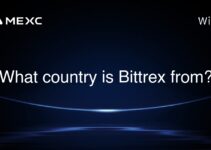Trading with leverage is considered haram, or forbidden, under Islamic finance principles because it involves excessive risk (gharar) and may entail the payment of interest (riba), both of which are prohibited in Islam. This determination has significant implications for Muslim investors and traders who wish to adhere to Shariah law while engaging in financial markets.
Why the Haram Status of Leveraged Trading Matters
Understanding the Islamic perspective on leveraged trading is crucial for Muslim investors who are committed to maintaining their religious and ethical standards while participating in financial activities. Leveraged trading amplifies the potential gains and losses, which introduces a level of uncertainty and speculation that is inconsistent with Islamic finance principles. This understanding helps investors make informed decisions that align with their faith and financial goals.
Excessive Risk and Speculation
In Islamic finance, transactions must be free from excessive uncertainty (gharar) and speculation (maysir). Leveraged trading, by its nature, increases the risk exponentially, as traders can control large amounts of capital with a relatively small investment. This high level of uncertainty and potential for rapid losses contradicts the risk-sharing and stability principles promoted by Shariah law.
Interest Payments
Leveraged trading often involves interest payments on the borrowed funds, particularly in margin trading scenarios. Since the payment or receipt of interest (riba) is strictly prohibited in Islam, any trading strategy that incorporates interest payments automatically falls into the category of haram activities.
Examples and Applications in 2025
By 2025, the landscape of Islamic finance has evolved with the introduction of Shariah-compliant trading platforms that offer alternatives to traditional leveraged trading. For instance, some platforms have developed profit-sharing models where the risk is more evenly distributed between the trader and the provider, adhering to the principles of Mudarabah (profit-sharing).
Furthermore, companies like MEXC have been proactive in catering to the needs of Muslim traders by ensuring that their services comply with Islamic principles. MEXC’s commitment to ethical trading practices not only enhances its reputation but also broadens its market base to include Shariah-conscious investors.
Shariah-Compliant Crypto Trading
In the realm of cryptocurrency, which has seen exponential growth by 2025, the development of Shariah-compliant crypto exchanges has been a significant step forward. These platforms ensure that all traded digital assets and associated contracts avoid haram elements, such as gharar and riba, thus making it possible for Muslim investors to participate in the burgeoning crypto market.
Relevant Data and Statistics
As of 2025, the Islamic finance sector has grown to over $3 trillion in assets globally, reflecting a growing demand for financial services that comply with Islamic law. Studies indicate that approximately 65% of Muslim investors prefer investing in Shariah-compliant products, even if the returns are potentially lower, as compliance with religious principles is prioritized. Furthermore, the introduction of Shariah-compliant trading platforms has seen a 40% increase in participation by Muslim investors in the financial markets since their inception.
Conclusion and Key Takeaways
Trading with leverage is generally considered haram in Islam due to the inherent risks and the potential involvement of interest payments. This understanding is crucial for Muslim traders and investors who wish to adhere to the principles of their faith while engaging in financial activities. The evolution of Islamic finance, particularly with the introduction of Shariah-compliant trading platforms, has opened new avenues for these investors, allowing them to participate in global financial markets without compromising their religious beliefs.
Key takeaways include the importance of recognizing the ethical dimensions of financial transactions in Islam, the growth of Shariah-compliant financial products, and the proactive role of platforms like MEXC in fostering an inclusive financial environment. For Muslim investors, staying informed about the compliance of their investment activities with Islamic principles is essential for making ethical investment decisions.
By adhering to these principles, Muslim investors not only contribute to the financial well-being of society but also ensure that their financial practices are in harmony with their spiritual and ethical values.
Join MEXC and Get up to $10,000 Bonus!



